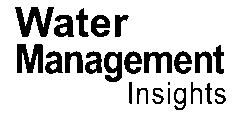The global smart water grid market is surging, with a valuation of US$ 22.65 billion in 2024, and projections indicate it will reach US$ 36.03 billion by 2033, growing at a CAGR of 5.70%. This growth is fueled by rapid urbanization, water scarcity, and the urgent need for efficient water management. The installation of over 1.2 billion smart water meters globally marks a significant milestone in the adoption of smart water technologies. North America currently leads the market with a 35% share, while the Asia-Pacific region is growing at the fastest rate, with a CAGR of 12.8% from 2020 to 2024. Major cities like Los Angeles have completed the installation of 750,000 smart water meters, covering 90% of their service area, while Singapore’s PUB has deployed 300,000 smart water meters as part of its Smart Water Meter Program.
Governments and utilities are investing heavily in smart water infrastructure. The European Union has allocated €5 billion for smart water projects in its 2021-2027 budget, and India’s Jal Jeevan Mission aims to provide 100 million household tap connections by 2024, incorporating smart water systems. China’s 14th Five-Year Plan targets upgrading 100 cities with smart water infrastructure by 2025. These initiatives reflect the global shift towards intelligent water management, driven by the need to reduce water losses, improve efficiency, and ensure sustainability in urban water systems.
Technological advancements are at the core of the smart water grid market revolution. IoT-connected devices in the water sector reached 20 million globally in 2024, enabling real-time monitoring and leak detection. Companies like IBM have implemented their Intelligent Water software in over 200 utilities worldwide, while Siemens’ Water Management System has been deployed in more than 1,000 water treatment plants. Schneider Electric’s EcoStruxure for Water and Wastewater has been installed in over 100,000 locations globally, showcasing the widespread adoption of smart water solutions. Artificial Intelligence (AI) and Machine Learning (ML) are transforming water management by optimizing water treatment processes and enabling predictive maintenance. Sensus, a Xylem brand, has deployed more than 20 million smart water devices across 100 countries, and Itron’s water solutions are now used by over 5,000 utilities worldwide. These technologies not only improve operational efficiency but also contribute to significant water savings. For example, the city of Melbourne reduced water leakage by 40% through its smart water network, demonstrating the tangible benefits of advanced water management systems.
Government initiatives and funding are playing a crucial role in accelerating the adoption of smart water grid market. In 2024, the World Bank approved $1.5 billion in financing for smart water projects in developing countries, while the African Development Bank funded projects worth $750 million across the continent. The UK water industry invested £2.5 billion in smart water technologies between 2020 and 2024, and Australia’s Smart Water Metering Program aimed to install 5 million smart meters across major cities by 2024. In Asia, Thailand’s Provincial Waterworks Authority launched a $500 million smart meter project, aiming to install 2 million devices by 2026. Saudi Arabia’s NEOM project incorporated a fully integrated smart water grid system covering 26,500 square kilometers, setting a benchmark for futuristic water management. These investments reflect the growing recognition of smart water grids as a critical component of sustainable urban development, with governments worldwide prioritizing the modernization of water infrastructure to address increasing water demand and scarcity.
The smart water grid market is dominated by key players who are driving innovation and setting industry standards. Sensus, a Xylem brand, has deployed more than 20 million smart water devices across 100 countries, while Itron’s water solutions are now used by over 5,000 utilities worldwide. Veolia Water Technologies has implemented smart water solutions in over 5,000 industrial facilities, and Suez’s ON’connect smart metering solution has been deployed in more than 4 million households globally. Other major players in the global smart water grid market include Badger Meter, which has deployed over 1 million ORION Cellular LTE-M endpoints for smart water metering, and Honeywell, whose smart water solutions are implemented in over 500 cities worldwide. These companies are not only expanding their global footprint but also driving technological advancements in the sector. For instance, GE Digital’s water and
